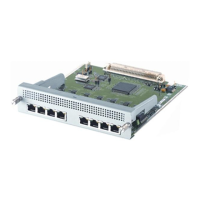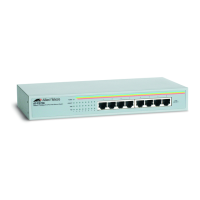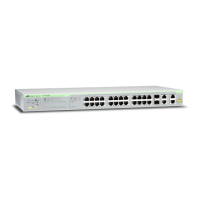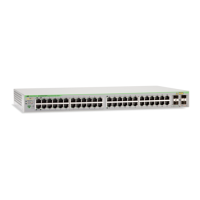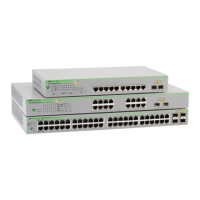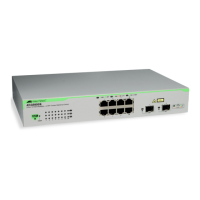Introduction UCP Protocol Configuration Overview
Software Reference for SwitchBlade x3100 Series Switches (Layer Two Switching)
4-176
4.8.2.3 UCP Redundancy (Different Nodes)
With UCP redundancy, a standby upstream interface can be configured. In most cases these interfaces for the
UFO VLAN will be on separate nodes, so redundancy is provided at the node level.
1. The active node does not actively source hello type messages. It is responsible for responding to messages
received from standby nodes. This is done to reduce chatter and would be redundant for networks which
do not have a standby node.
2. The active node response contains the state of the upstream port - Up or Down.
3. The active node response is to flood out all UCP enabled network ports. This is to provide information to
all nodes in the network so that each can maintain an active and secondary “topology”.
4. The active node must source an unsolicited response if its configured upstream port changes state. This
allows the active node to “monitor” its upstream port and to provide rapid failover and recovery character-
istics.
5. The standby node is responsible for sourcing hello messages on a rapid periodic basis. These hello messages
must be sent for each VLAN for which it is a standby for. These hello messages are flooded out each UCP
enabled network port.
6. The standby node must assume that the active node is no longer in service if it fails to receive 2 or more
hello responses.
Check if port on which message received is configured as
UFO-enabled port
If not UFO-enabled, message is discarded.
If UFO-enabled, continue.
Check if this node is an upstream node for the UFO
VLAN.
If this is not an upstream node, message is discarded
If this is an upstream node, continue
The upstream node does not wait for its periodic timer
expiry to send the upstream port notification messages
over its allowed ring ports. It sends the upstream port
notification message over all the allowed ring ports in rapid
succession a few times after which it settles down to send-
ing the notification message using its periodic timer
The non-upstream nodes receive the upstream port notifi-
cation message and process them as described in Table 4-
22.
TABLE 4-23 Processing of Topology Change Message by Nodes Between
Originating and Upstream Node (Continued)
Process If Check Condition, Outcome
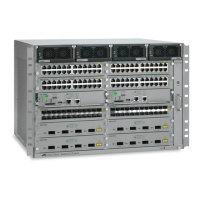
